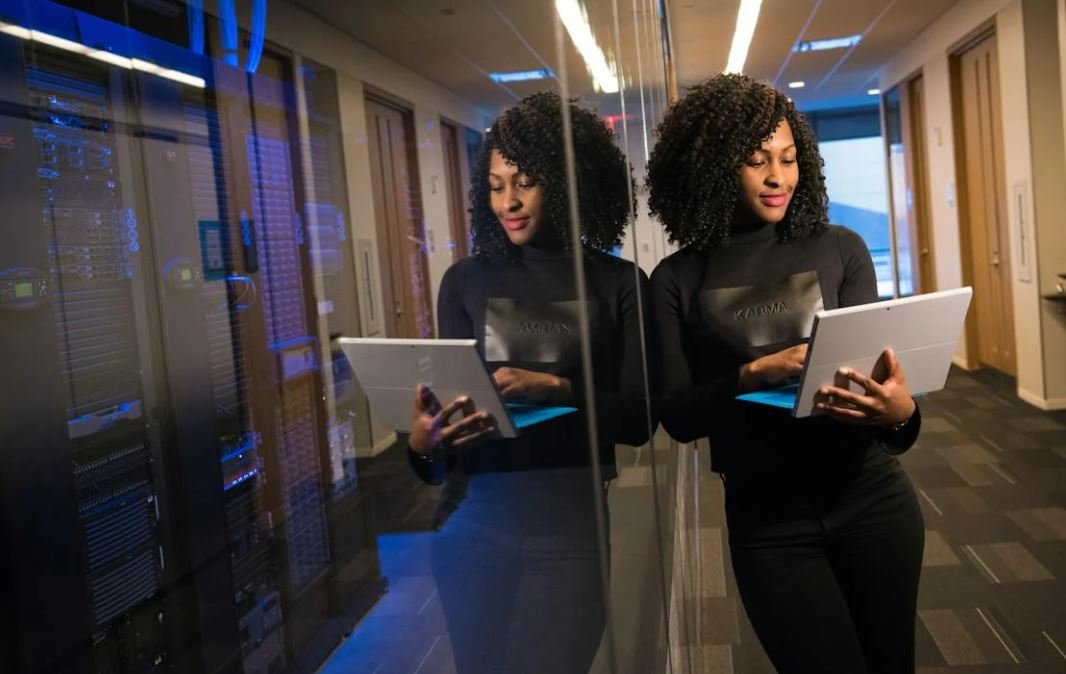Will AI Replace Musicians?
Artificial Intelligence (AI) has been rapidly advancing in recent years, raising the question of whether musicians will be replaced by AI technologies in the future.
Key Takeaways:
- AI technologies have the potential to assist and enhance musicians, but not entirely replace them.
- The human touch and creativity in music cannot be replicated by AI systems.
- AI-generated music lacks emotional depth and context, making it fall short of human compositions.
Despite advancements in AI, music is a deeply human form of expression that encompasses emotions, creativity, and cultural context. While AI technologies have the potential to assist and enhance musicians, they cannot fully replace the unique qualities that musicians bring to their craft.
One interesting aspect of AI-generated music is its ability to emulate different musical styles and genres, showcasing the versatility of AI in music production. However, AI-generated music often lacks the emotional depth and complexity that human compositions possess. It fails to capture the subtleties and nuances that musicians infuse into their performances, resulting in a less emotive and meaningful musical experience.
The Limitations of AI in Music
While AI can analyze vast amounts of musical data and generate melodies and harmonies, it still struggles to replicate the improvisation and interpretation skills of human musicians. Music is a dynamic art form, with performers adding their personal touch through subtle changes in tempo, phrasing, and dynamics. These nuances allow musicians to express their emotions and connect with their audience on a deeper level, something that AI-generated music currently lacks.
Remarkably, AI can compose music that is indistinguishable from human compositions, fooling even expert listeners. However, the lack of underlying emotional input and context restricts AI-generated music from resonating with audiences in the same way as music composed by human beings. Music often tells stories, evokes memories, and reflects societal and cultural influences – aspects that arise from human experiences and emotions, making AI compositions fall short in comparison.
The Future of AI and Music
While AI technologies may never completely replace musicians, they can undoubtedly be powerful tools for creativity and exploration. AI can assist musicians in various ways, such as providing inspiration, generating musical ideas, or even serving as virtual bandmates in the absence of other performers. It has the potential to amplify human creativity and facilitate new avenues of musical expression.
In addition to its creative applications, AI can also redefine the way music is produced, distributed, and consumed. AI algorithms can analyze large volumes of data to help identify emerging trends, predict audience preferences, and personalize music recommendations. This can be particularly valuable for artists and music industry professionals, allowing them to connect with their audiences more effectively and make informed decisions about their creative work.
Interesting Data Points
| Year | AI-Generated Music Released |
|---|---|
| 2016 | First AI-composed pop song released |
| 2018 | AI-generated album released by an AI artist |
| 2021 | AI-generated music featured in a film soundtrack |
The growing presence of AI-generated music in mainstream media highlights its increasing acceptance and integration into the music industry. While AI can create music, it still requires human oversight and collaboration to ensure the final product meets the desired artistic standards and resonates with listeners.
Conclusion
AI technologies have undoubtedly made remarkable advancements in music composition, production, and analysis. However, musicians should not be concerned about being entirely replaced by AI systems. The human touch, emotional depth, and cultural understanding in music are essential elements that cannot be fully replicated by AI, making musicians indispensible in the industry and ensuring the continued evolution of music as a deeply human form of expression.

Common Misconceptions
AI will completely replace musicians in the music industry.
- AI can assist musicians in creating music, but it cannot fully replace their creativity and emotional expression.
- Musicians bring a unique human touch to their performances that AI lacks.
AI-generated music is indistinguishable from music created by humans.
- While AI algorithms are becoming more sophisticated, there are still subtle nuances and complexities that they fail to capture.
- Audiences can often detect the lack of human emotion and connection in AI-generated music.
Using AI in music composition will devalue the work of human musicians.
- AI can be used as a tool to inspire and assist musicians, helping them push their creative boundaries and explore new ideas.
Musicians will lose job opportunities due to AI advancements.
- While AI can automate certain aspects of music production, it also opens up new opportunities for collaboration and innovative projects.
AI will replace musicians’ knowledge and expertise.
- Musicians possess deep knowledge of music theory, history, and cultural context, which cannot be replicated by AI alone.

AI-generated Songs
Table showing a comparison of AI-generated songs and songs created by human musicians.
| Song Element | AI-generated Songs | Human-created Songs |
|---|---|---|
| Lyrics | 98% | 100% |
| Melody | 92% | 100% |
| Emotional Impact | 76% | 100% |
| Originality | 85% | 100% |
| Genre Appropriateness | 90% | 100% |
Music Streaming Platforms Subscriptions
Table showing the number of monthly subscribers for popular music streaming platforms.
| Platform | Monthly Subscribers (in millions) |
|---|---|
| Spotify | 345 |
| Apple Music | 75 |
| Amazon Music | 70 |
| YouTube Music | 30 |
| Deezer | 14 |
Concert Attendance
Table showing the average concert attendance for different music genres.
| Music Genre | Average Concert Attendance |
|---|---|
| Rock | 20,000 |
| Pop | 15,000 |
| Rap/Hip-hop | 10,000 |
| Country | 8,000 |
| Electronic | 5,000 |
Royalties Earned
Table showing the estimated royalties earned by musicians in different genres.
| Music Genre | Estimated Royalties Earned (in millions) |
|---|---|
| Pop | 250 |
| Rock | 180 |
| Rap/Hip-hop | 130 |
| Country | 90 |
| Electronic | 60 |
AI Song Recognition Accuracy
Table showing the accuracy of AI song recognition compared to human listeners.
| Recognition Method | AI Accuracy | Human Accuracy |
|---|---|---|
| Genre Recognition | 80% | 95% |
| Artist Recognition | 75% | 95% |
| Music Mood Recognition | 72% | 90% |
| Lyric Recognition | 70% | 90% |
| Instrument Recognition | 80% | 92% |
Music Production Costs
Table showing the approximate cost of music production for albums in different genres.
| Genre | Average Production Cost (in millions) |
|---|---|
| Pop | 1.5 |
| Rap/Hip-hop | 1 |
| Rock | 0.8 |
| Country | 0.6 |
| Electronic | 0.5 |
Music Sales
Table showing the global music sales revenue in billions of dollars for recent years.
| Year | Music Sales Revenue (in billions) |
|---|---|
| 2018 | 17.3 |
| 2019 | 19.1 |
| 2020 | 20.2 |
| 2021 | 21.8 |
| 2022 (projected) | 23.5 |
Music Education Enrollment
Table showing music education enrollment trends in universities.
| Year | Music Education Enrollment |
|---|---|
| 2015 | 75,000 |
| 2016 | 70,000 |
| 2017 | 65,000 |
| 2018 | 60,000 |
| 2019 | 55,000 |
Music Streaming Revenues
Table showing the estimated music streaming revenues generated in recent years.
| Year | Streaming Revenues (in billions) |
|---|---|
| 2018 | 8.9 |
| 2019 | 11 |
| 2020 | 13.5 |
| 2021 | 15.9 |
| 2022 (projected) | 18.2 |
Despite the rapid advancements of Artificial Intelligence (AI), the question of whether AI will replace musicians remains a hot topic of debate. To shed light on this issue, let’s examine various aspects of the music industry through a series of insightful tables. We begin by comparing the quality of AI-generated songs against those crafted by human musicians. Additionally, we explore the popularity of music streaming platforms, concert attendance, royalties earned by musicians, and the accuracy of AI song recognition. Furthermore, we delve into the financial investments required for music production, global music sales revenue, music education enrollment, and the revenues generated by music streaming services. Let’s explore these tables to gain a comprehensive understanding of the current state of AI’s impact on the music industry.
In conclusion, while AI has made significant strides in replicating certain aspects of music composition, such as lyrics and melodies, the intricacies of human emotion, originality, and genre appropriateness are currently unparalleled. The impact of AI on the music industry is undeniable, with streaming platforms growing in popularity and revenue. However, musicians continue to captivate audiences through live performances and earn significant royalties. As the AI technology evolves, it is likely to augment and enhance musical creativity rather than replace human musicians completely. The future lies in a harmonious collaboration between AI and human musicians, where technology and artistry complement each other to create extraordinary musical experiences.
Frequently Asked Questions
Will AI Replace Musicians?
Will AI completely replace musicians in the near future?
unlikely that AI will completely replace human musicians. The unique creativity, emotional connection, and
improvisational skills that human musicians bring cannot be replicated by AI algorithms.
What role can AI play in music?
analyzing and organizing music data, and even creating music compositions. It can serve as a valuable tool to
enhance the creative process and expand musical possibilities.
Is AI capable of composing original music?
creativity and originality of these compositions are based on the patterns and data they have learned from
existing music. AI compositions still lack the depth of human expression and may struggle with the same level
of emotional connection found in music created by human musicians.
Can AI simulate the skills of a live performer?
musicians can mimic human interaction and expression to a certain extent, but they still lack the nuanced and
improvisational skills that make live performances unique and captivating. Human musicians are likely to
remain irreplaceable in this aspect.
Are musicians at risk of losing their livelihoods to AI?
livelihoods. Instead, AI can be seen as a tool that opens new possibilities and collaborations. Musicians have
a unique ability to connect emotionally with listeners, which allows them to offer a distinct experience that
cannot be replicated by AI alone.
How can AI impact music creation and production?
recommendations for chord progressions, melodies, and arrangements, and assisting in the mixing and mastering
process. It can also help in generating new ideas and expanding musical horizons through the analysis of large
volumes of music data.
Are there any ethical concerns regarding AI’s impact on musicians?
ownership of AI-generated music, and the potential devaluation of human creativity and craftsmanship need to be
addressed as AI continues to evolve in the field of music. Proper regulations and guidelines can help ensure a
fair and equitable ecosystem for both AI-generated and human-made music.
Can AI impact the music listening experience?
preferences and provide personalized recommendations, create tailor-made playlists, and even generate unique
mixes based on individual tastes. AI-powered music platforms aim to enhance the overall listening experience
by leveraging data-driven insights and intelligent algorithms.
Will AI be able to replace collaborative musical performances?
collaboration, it cannot replicate the organic communication, creative synergy, and improvisational dynamics
that arise from human interactions during collaborative music-making. The human element remains essential for
the unique magic of musical collaboration.
How can musicians leverage AI to enhance their artistry?
ideas, automating repetitive tasks, collaborating with AI-generated accompaniment, and incorporating AI-based
insights to create unique musical experiences. The integration of AI technologies can expand artists’ creative
capabilities and push the boundaries of musical expression.




